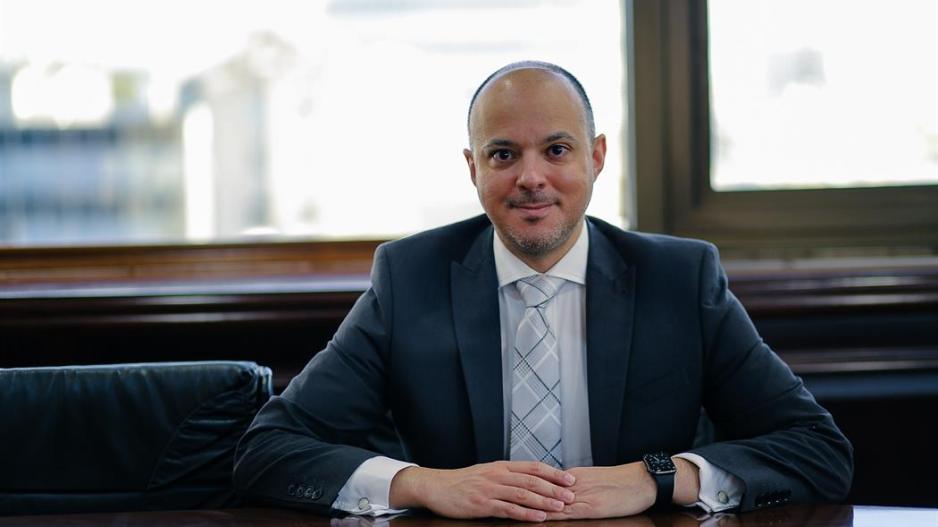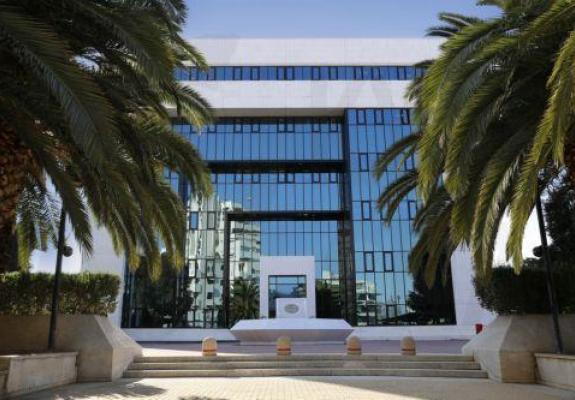Cyprus' Research and Innovation Ecosystem Sees Significant Growth, RIF Director Says
A Spotlight on Health, Digital Tech, Agri-Food, and Defence
In a recent interview with the Cyprus News Agency, Theodoros Loukaidis, the Director General of the Cyprus Research and Innovation Foundation (RIF), spotlighted the significant advancement of Cyprus' research and innovation ecosystem.
Tracing the onset of this growth to just before the pandemic, Loukaidis highlighted the establishment of new universities and centres of excellence over the past decade. Many of these institutions, he emphasized, were developed with the support of RIF and funding from a competitive program by the European Commission. Notably, Cyprus recently celebrated its seventh accomplishment under this program with the inauguration of a Centre of Excellence specializing in Renewable Energy Sources.
Loukaidis also drew attention to the burgeoning number of research centres, institutions, and businesses in Cyprus over the past decade. He remarked, "Today, we've reached a pivotal moment with a surge in innovative businesses, ranging from startups to well-established firms, all investing in research and innovation." With the backing of RIF, these entities have not only become market-competitive but have also ventured into exporting their pioneering products and solutions overseas, thereby catalyzing new employment avenues within the nation.
He proudly stated, "Cyprus' ecosystem has witnessed exponential growth. Through RIF's consistent support, a remarkable achievement stands out: over the past two years, Cyprus has earned the label of a 'strong innovator' on the European Innovation Scoreboard. Our aim extends beyond maintaining this status; we're working to enhance it."
Addressing the feedback on RIF's recent and preceding initiatives, Loukaidis revealed an escalating engagement over the years. He detailed, "From 2016 onwards, we've received over a thousand proposals and have granted more than €148 million in awards." The allocation of these funds, he clarified, adhered to a comprehensive five-pillar strategy spanning 2021-2027. These pillars encompass research, market-centric collaboration and knowledge transfer, innovation, bolstering of infrastructures and capabilities, and global outreach programs.
An encouraging trend Loukaidis emphasized is the nearly even distribution of involvement between research entities and businesses, signaling a pronounced interest from the commercial sector. "Around a thousand firms have engaged in IDEK's initiatives," he shared, further expressing, "Our primary aim is to amplify the participation of Cypriot businesses in the realm of research and innovation."

Furthermore, he underscored the surging prospects in digital technologies, communication, information technology, agri-food, maritime, and defence.
Loukaidis revealed, "For the first time, RIF has launched thematic programs, notably partnering with the Ministry of Defence. This collaboration paved the way for a €3 million funding program, bolstering seven projects tailored to address the Ministry's challenges."
The energy ecosystem is set to receive a significant boost with impending funding schemes, aligning with the "REPowerEU" initiative under the National Recovery and Resilience Plan. Funding hasn't remained restricted to these sectors, with projects in tourism, financial services, and various other domains receiving backing.
The emphasis on merging the academic sphere with the commercial sector, particularly accentuating economic competitiveness, remains a priority. Loukaidis pointed to successful partnerships and collaborations, a sentiment echoed by European indicators.
"We've seen academics transition seamlessly into the business world, maintaining their academic ties. With support from research entities, many have quickly secured private investments, launched products, and witnessed initial sales revenues," Loukaidis shared.
Moreover, he stressed the urgency of integrating more Cypriot firms into R&I and capitalizing on the invaluable insights generated by local research institutions. This strategy is geared not just for national prominence but to spearhead European ventures and integrate into expansive research networks.
Loukaidis affirmed, "With an array of financial resources and specialized RIF programs, stakeholders, including researchers and businesses, have a wealth of opportunities awaiting them, irrespective of their tenure in the R&I landscape."
RIF's arsenal is replete with ongoing schemes and services fostering the national R&I environment:
-
Pree-Seed Program: Designed to back innovative business forays with funding up to €120,000. Deadline: November 3rd.
-
Co-Develop Program: A collaborative platform for research entities and businesses, it aids in transferring knowledge from the lab to the marketplace. The current cycle covers agri-food, maritime, shipping, and healthcare, with each project eligible for €600,000. Deadline: October 20th.
-
Networking Workshops: Scheduled from September 19th to 25th in Nicosia, these sessions aim to foster interconnectivity within the ecosystem.
-
Proof of Concept Program: A niche funding scheme granting €40,000 per project, it targets the early-stage exploration of technological market applications. Deadline: November 10th.
-
Bridge2 Horizon Program: With sights on globalizing the research and innovation landscape, it fortifies research teams' propositions destined for the European Commission's ambitious "Horizon Europe" program.
-
DISRUPT Program: A blended funding initiative, it is crafted to back companies launching Minimum Viable Products (MVPs) in the market.






